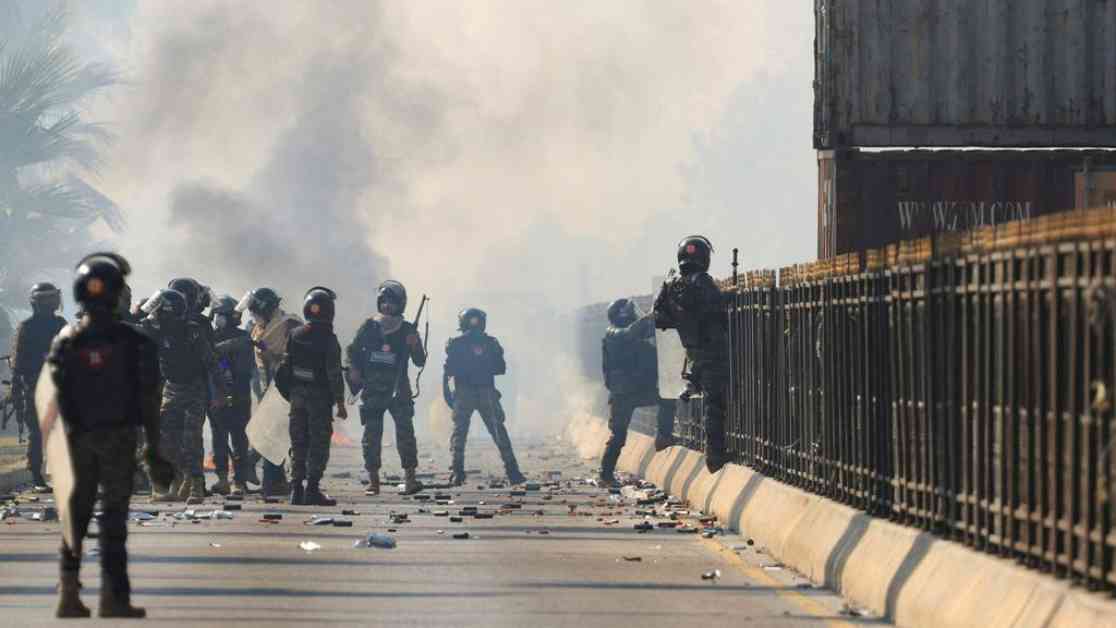In Pakistan zijn er bij protesten tegen de gevangenhouding van oud-premier Imran Khan zes doden gevallen, waaronder vier leden van oproertroepen. Ook zijn er veel gewonden, waaronder een cameraman van persbureau AP die werd aangevallen door Khan-aanhangers.
Imran Khan, de voormalige premier en cricketspeler, zit al meer dan een jaar in de gevangenis vanwege het lekken van staatsgeheimen. Er zijn nog meer dan 150 andere zaken waarvoor hij vervolgd kan worden. Zijn aanhangers beweren dat hij onschuldig is en dat zijn politieke tegenstanders hem het zwijgen willen opleggen. Sinds zondag zijn er protesten tegen zijn detentie en wordt er opgeroepen tot het aftreden van de regering.
In Islamabad zijn duizenden militairen en agenten aanwezig, vooral op een plein nabij waar de president van Belarus, Loekasjenko, verblijft. De Khan-aanhangers veroorzaken vernielingen en marcheren langzaam naar het plein onder leiding van Khans vrouw, Bushra Bibi.
De aanhangers van de oud-premier doorbraken een barricade van containers, waarna de politie het vuur opende. Het is niet duidelijk of er gericht is geschoten of dat er alleen traangasgranaten zijn gebruikt.
Een van de deelnemers vertelt dat hij meedoet omdat Khan dat heeft gevraagd. “We zullen hier blijven totdat Khan bij ons is. Hij zal bepalen wat er verder gebeurt. Als ze nog een keer schieten, zullen we met kogels antwoorden.”
Imran Khan was premier van Pakistan tussen 2018 en 2022. Na een motie van wantrouwen werd hij afgezet. Sinds zijn gedwongen vertrek is hij meerdere keren veroordeeld voor zaken als corruptie en het lekken van staatsgeheimen. Hij blijft volhouden dat hij onschuldig is en spreekt van een politieke afrekening.
Tijdens de ongeregeldheden in Pakistan is een politieagent gedood en zijn tientallen mensen gewond geraakt. De situatie blijft gespannen en de autoriteiten proberen de rust te herstellen. Er wordt gevreesd voor meer geweld als de protesten doorgaan. De internationale gemeenschap heeft opgeroepen tot kalmte en dialoog om de situatie op vreedzame wijze op te lossen.

